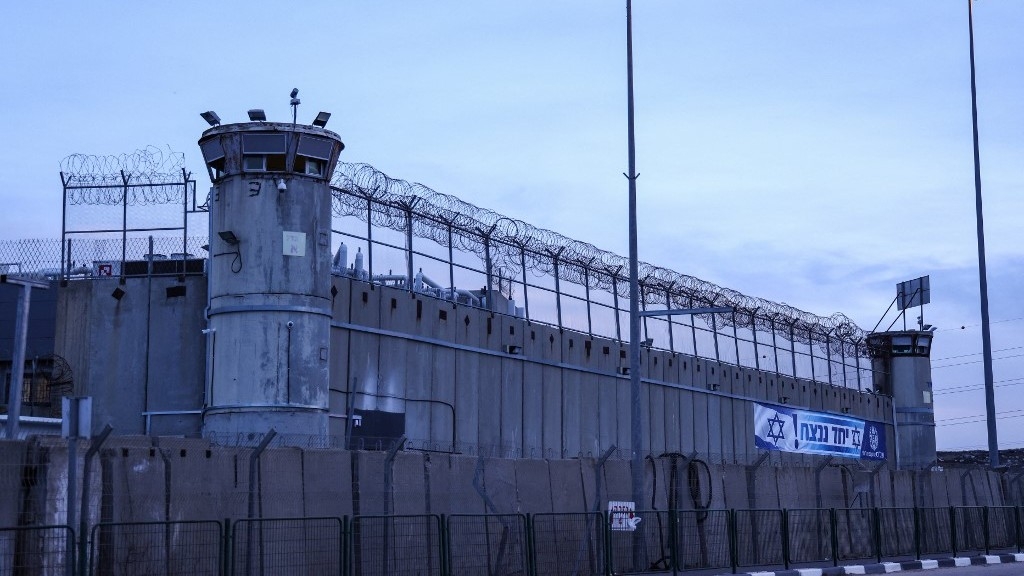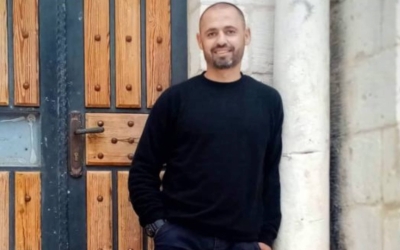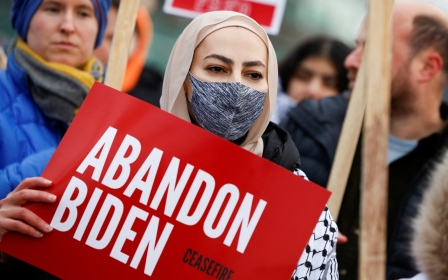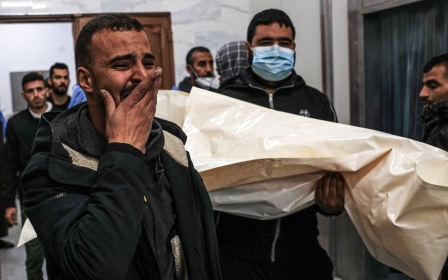War on Gaza: Palestinians packed in intolerably overcrowded cells in Israeli prisons, says report

The Israeli Public Defender's Office published a report on Tuesday stating that some Israeli prisons have been declared to be in a state of emergency due to severe overcrowding.
According to the report, since the start of the war on 7 October at least 3,400 people have been imprisoned.
The overcrowding has resulted in the violation of the basic rights of people in prison, including many being forced to sleep on the floor.
During a visit by members of the Public Defender’s Office, squalid conditions were noted, including "intolerable overcrowding", with less than three square metres of space per person; poor sanitary conditions; pest issues; inadequate ventilation, and a lack of basic necessities for the incarcerated.
The report said that the overcrowding has caused people stress and anxiety, which can at times cause unnecessary friction in cells.
New MEE newsletter: Jerusalem Dispatch
Sign up to get the latest insights and analysis on Israel-Palestine, alongside Turkey Unpacked and other MEE newsletters
A statement from the Public Defender’s Office said that it had witnessed an “unprecedented prison crisis, in which detainees and prisoners were crowded into inhumane living spaces”.
It added that almost half of the incarcerated in Israel are held in harsh conditions that do not meet the High Court’s "first step" of living space, which states that they are to be held in an area of no less than three square metres.
Overcrowded, squalid conditions
Before the start of the war, Israeli prisons held 16,353 Palestinian detainees, an excess of around 2,000 inmates. Now, the number of prisoners has risen to at least 20,113 people.
Around 13 prisoners are kept in a single cell, with people often having to sleep on mattresses on the floor due to the lack of beds.
Squatter toilets are also located in each cell, with the shower located above them, leaving a bad smell in the same area prisoners eat in.
Prisoners reported that there was a “pest problem that is still noticeable, where they enter the cell through sewer holes,” while others said prisons were full of mould and peeling walls.
In the Jerusalem Detention Facility, staff members said that around 230 detainees were being held despite the maximum capacity of the prison being 170 people.
Electricity is also cut off for extended periods, meaning that prisoners are forced to eat in the dark.
Since the start of the war, prisoners have also been prohibited from going out into the yard, preventing them from seeing sunlight for several days at a time.
The report also found that around 40 percent of those incarcerated in Israeli prisons have been arbitrarily detained.
The Israeli security agency, known as the Shin Bet, responded to the report saying that “since the outbreak of the war, the prison service has been operating under a state of emergency, taking in thousands of security and criminal prisoners”.
The Shin Bet added that they have instructed officials to expand prisons.
Middle East Eye delivers independent and unrivalled coverage and analysis of the Middle East, North Africa and beyond. To learn more about republishing this content and the associated fees, please fill out this form. More about MEE can be found here.





